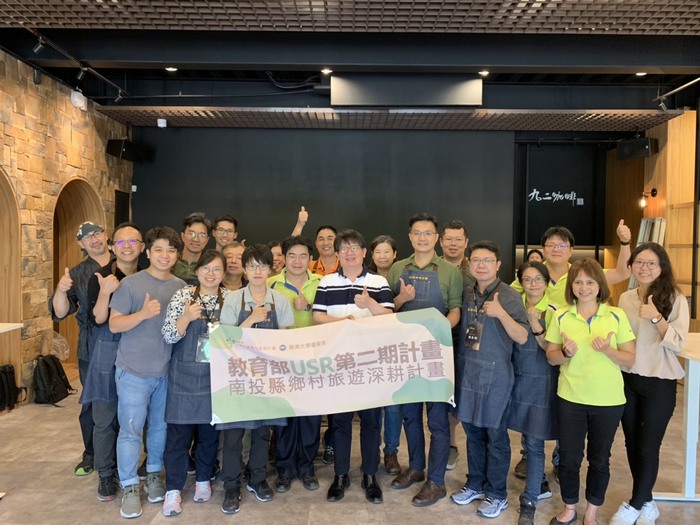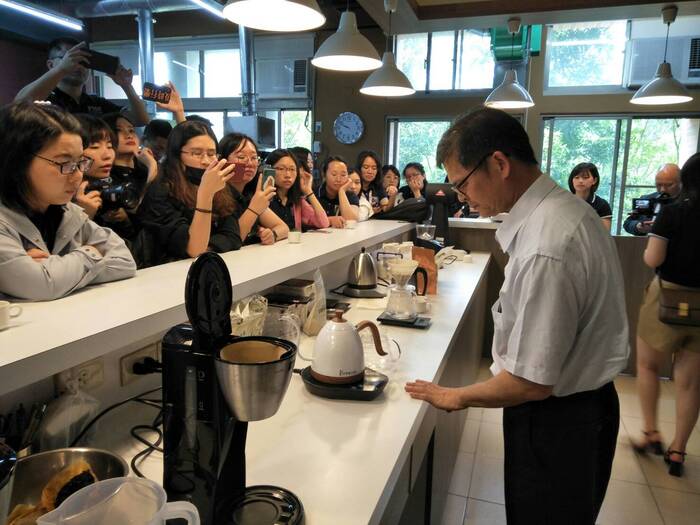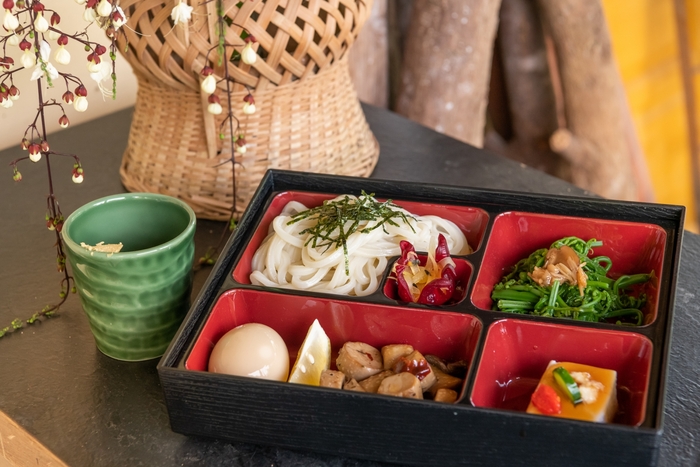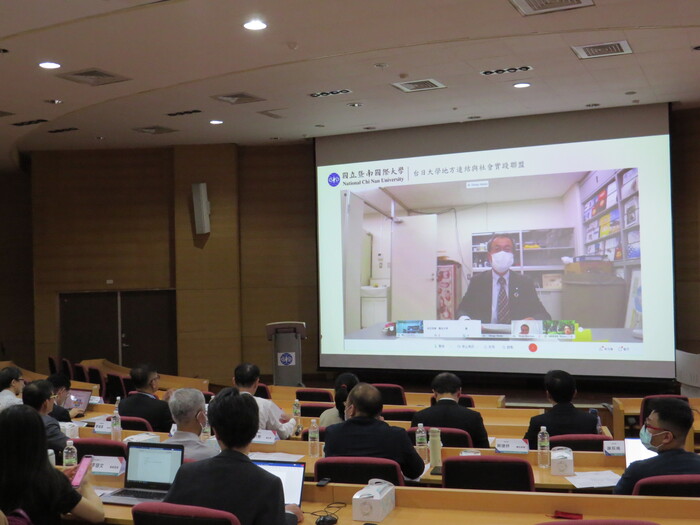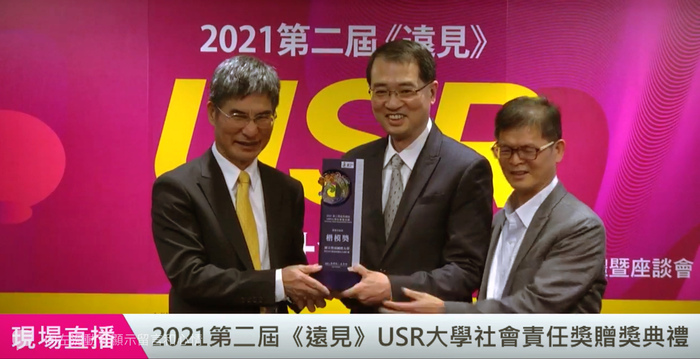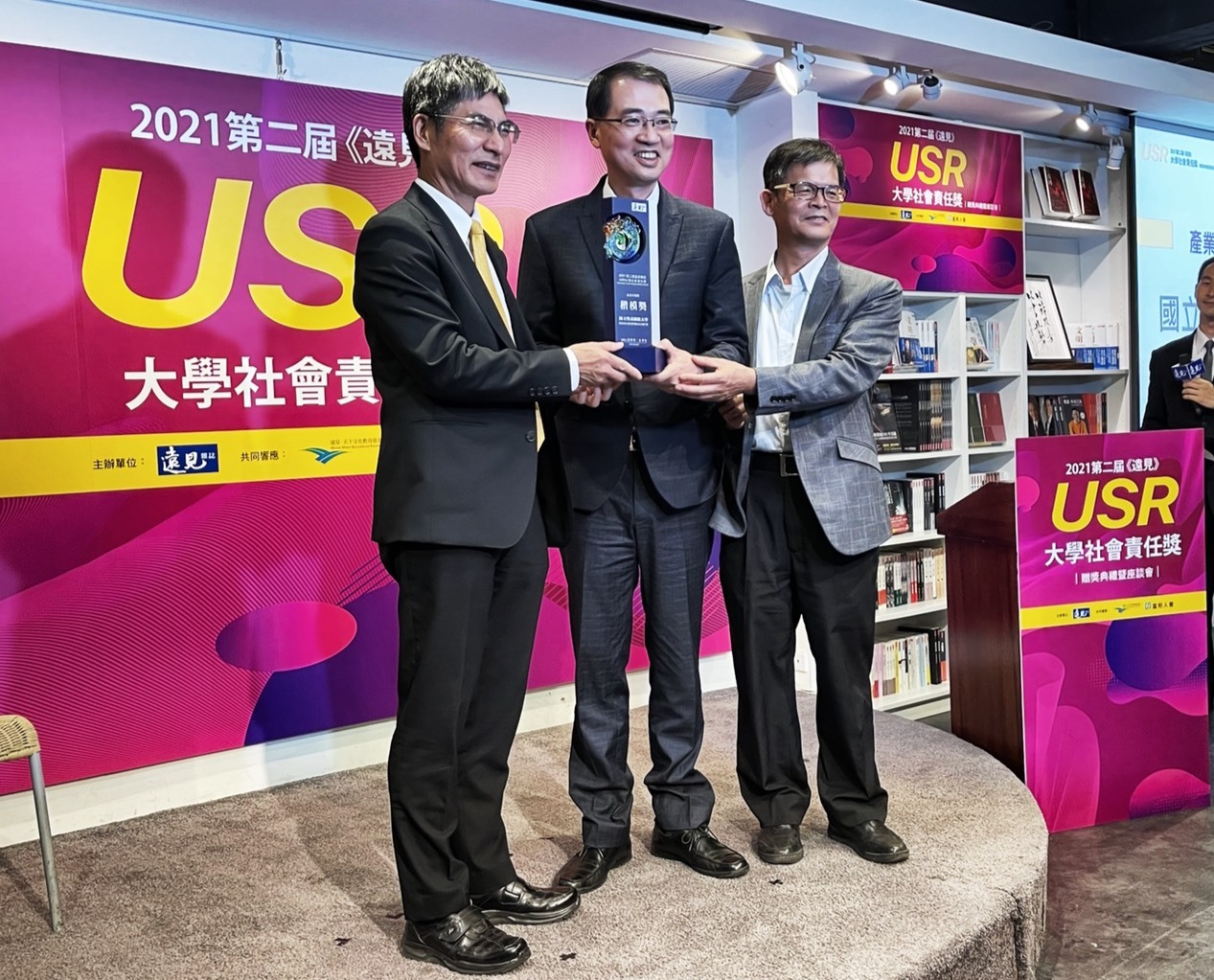NCNU recognized for USR achievements by Global Views Monthly
National Chi Nan University (NCNU) received a university social responsibility award from the 2021 Taiwan USR Rankings compiled by Global Views Monthly on April 8, securing its status as a formidable think tank looking out for the economy and tourism of Nantou and Sun-Moon Lake. The winning NCNU program, “Sustainable Industries and Tourism for Nantou,” was recognized as an exemplary model of university-enterprise partnership.
With plans to grow roots ever deeper across the Shui Sha Lian region surrounding the university campus, NCNU also has its eyes set on Southeast Asia for recruitment, exchanges, and partnerships. As part of the school’s innovative approach to education, the Committee for Shui Sha Lian Regional Cooperation (水沙連區域合作推動委員會) was founded in 2016 by NCNU to advise the Shui Sha Lian Research Center for Humanities Innovation and Social Practice. Its founding goals are advancing local interests through real-life applications of academic resources and talents.
Program supervisor Cheng Jen-son (鄭健雄) cited the NCNU College of Management’s USR program for tourism, food and hospitality, business management, and related industries as a model of meaningful collaboration among academia, businesses, and government agencies.
The “Academia-Industry Collaboration: Local Industry and Rural Tourism Development Program” spearheaded by NCNU, for example, is a culmination of five years of hard work devoted to combining regional specialties with all aspects of the local tourism sector. The program also recruits global partners as part of the university’s international outreach for building transnational networks and sharing resources.
NCNU President Dr. Dong-Sing Wuu (武東星) notes the importance of connecting the United Nations’ 17 Sustainable Development Goals (SDGs) with the university’s USR programs. The award-winning one recognized by Global Views Monthly is driven by the need for achieving sustainability, promoting employment and business opportunities, implementing responsible production and consumption, and forging global partnerships through tourism and industrial transformation.
Program participants range from 7 townships (Puli, Ren’ai, Xinyi, Yuchi, Mingjian, Guoxin, Caotun) engaging in hospitality, coffee, black tea, water bamboo, honey, and Sacha inchi oil (which is derived from the Inca peanut, a new cash crop recently introduced to Taiwan). NCNU students and instructors focus on quality of manufacturing and brand building.
The USR program also has plans for the four cornerstones of the tourism industry: dining, lodging, traveling, and shopping. For example, NCNU helped to develop 25 new recipes based on regional crops and indigenous traditions; the dishes were inspired by transformational icons such as the butterfly, as Nantou is an ecological heartland that was devastated by the Sept. 21 Earthquake in 1999.
Food safety is another cutting-edge field, with NCNU researchers studying the applications of hyperspectral imaging in quality inspections for high-grade produce such as organic honey, cooking oil, and mountain coffee.
In terms of lodgings, program participants are invited to join a public platform for promoting the 21st century’s latest tourism sweethearts – B&Bs and hostels. This platform is coupled with services for training foreign-language tour guides and upgrading hospitality practices.
In terms of travel, NCNU has been pursuing both digital and publishing means in promoting the sightseeing sites and popular eateries of Nantou. From paper maps to mobile apps and group discounts, this program is driving a network of businesses and shops that are now united in promoting Nantou together.
In embracing its role as a regional think tank, NCNU is currently working in partnership with government agencies including the Sun Moon Lake National Scenic Area Administration to launch destination management organizations (DMOs) such as tourism boards and regional brands like SunMoonLakePLUS.
This USR program has also been working with the Ministry of Science and Technology (MOST) and the Ministry of Education (MOE) on creating an alliance with Japanese scholars based in Taiwan. The university has been enlarging the scope of its community empowerment research through academic exchanges with Japan, and is currently re-adapting this model for partners in Vietnam and other Southeast Asian countries in yet another feat of borderless collaboration.
